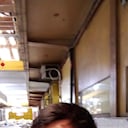What is the official currency of the country of Ecuador?
Ecuador has a developing economy that is highly dependent on commodities, namely petroleum and agricultural products. The country is classified as a medium-income country. Ecuador is a democratic presidential republic. The new constitution of 2008 is the first in the world to recognize legally enforceable Rights of Nature, or ecosystem rights. Ecuador is also known for its rich ecology, hosting many endemic plants and animals, such as those of the Galápagos Islands. It is one of 17 mega diverse countries in the world.
Ecuador suffered a banking crisis in 1999 that was caused by high rate of poverty. Over 45% of the population was beneath the national poverty line. Financial policies adopted in the early 1990's opened access to wider international markets, but contributed to a further destabilized local market. A credit boom also led to local banks approving many high risk loans that many were unable to repay. A run on banks in 1999 resulted in all accounts being frozen for 5 days and the failure of over 16 Ecuadorian banks.
Following the financial banking crisis of 1999, the U.S. dollar became legal tender in Ecuador on March 13, 2000, and sucre notes ceased being legal tender on September 11. Sucre notes remained exchangeable at Banco Central until March 30, 2001, at 25,000 sucres per dollar.
More Info:
en.m.wikipedia.org


